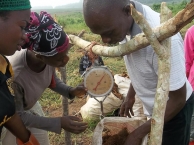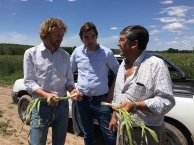
In November we visited Argentina and Chile to talk to our organic trade partners here. We get organic kiwi, garlic, pumpkins, plums, apples as well as pears from them. Ronald Vianen, the manager of our Dutch BioTropic branch as well as his colleague Joep van Koevorden, visited the area. Here they not only discussed the predicted harvest forecasts, planned delivery quantities or prices for the next season but also worked on developing a very good personal business relationship.
Continue Reading
Print
Email
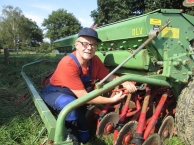
Modern agricultural work tools were loaded and sent on their journey at the start of November as part of the PPP programme in order to support the development of organic farming in Côte d’Ivoire. The sea freight container is now on its way to the Port of Abidjan in Côte d’Ivoire and will arrive there at the end of November. With these supporting work tools, the cooperative association Ivoire Organics will be able to cultivate the land more economically and thus achieve greater harvests in the long term.
Continue Reading
Print
Email
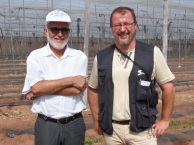
Whilst it is slowly getting colder in Europe, it is now peak season for many organic vegetables at the Moroccan organic producer PBS (Primeurs Biologiques du Souss). A first shipping from the new harvest will soon be on its way to Europe: the first thing that PBS will delivering are chillies and red and yellow organic peppers in mid-November.
Continue Reading
Print
Email
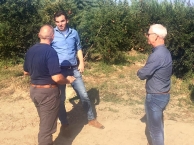
The pomegranate is a very old crop plant, which was even cultivated in ancient Egyptian gardens. Originally native to the area between Iran and India, the pomegranate has been grown and appreciated in the Mediterranean regions for a long time. In the ancient world, the fruit was known as a symbol of fertility because of its many seed kernels and in biblical paradise it is said to have been the apple from the tree of knowledge. Pomegranates are one of the more nutritious types of fruit. They contain many antioxidants, potassium and B-vitamins.
